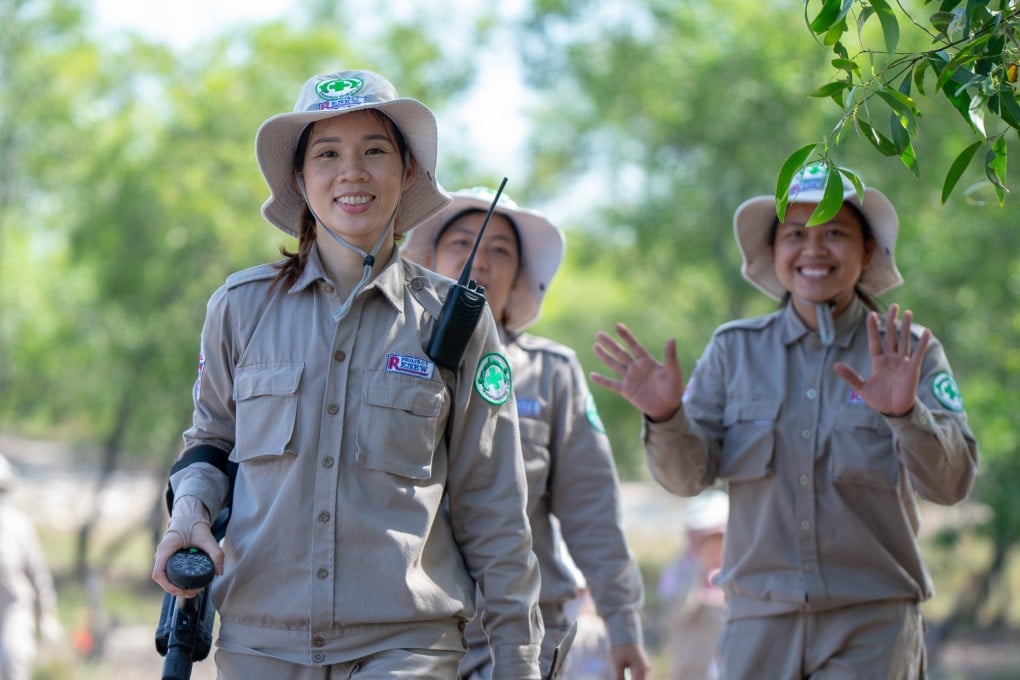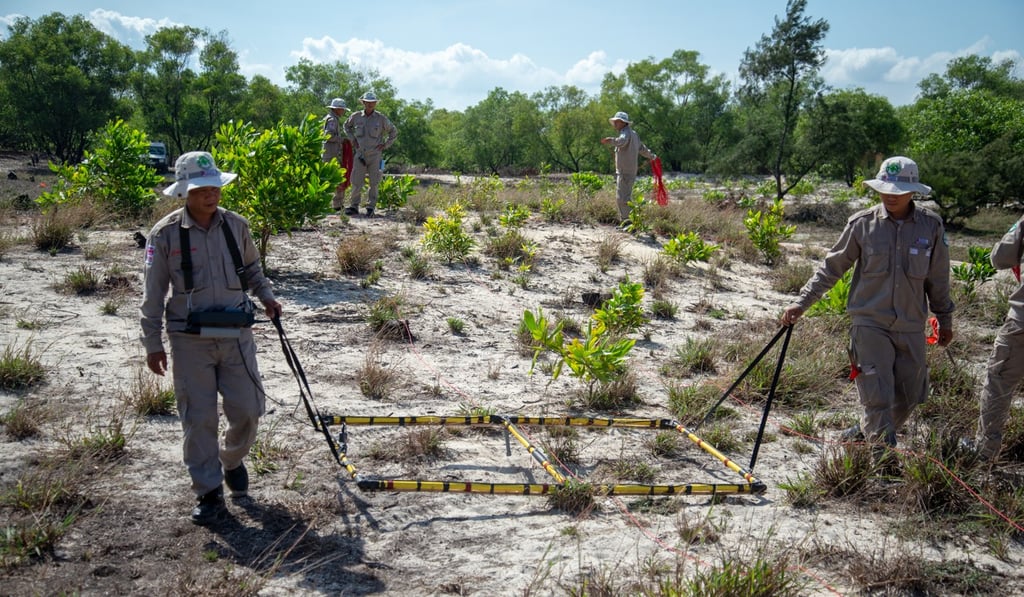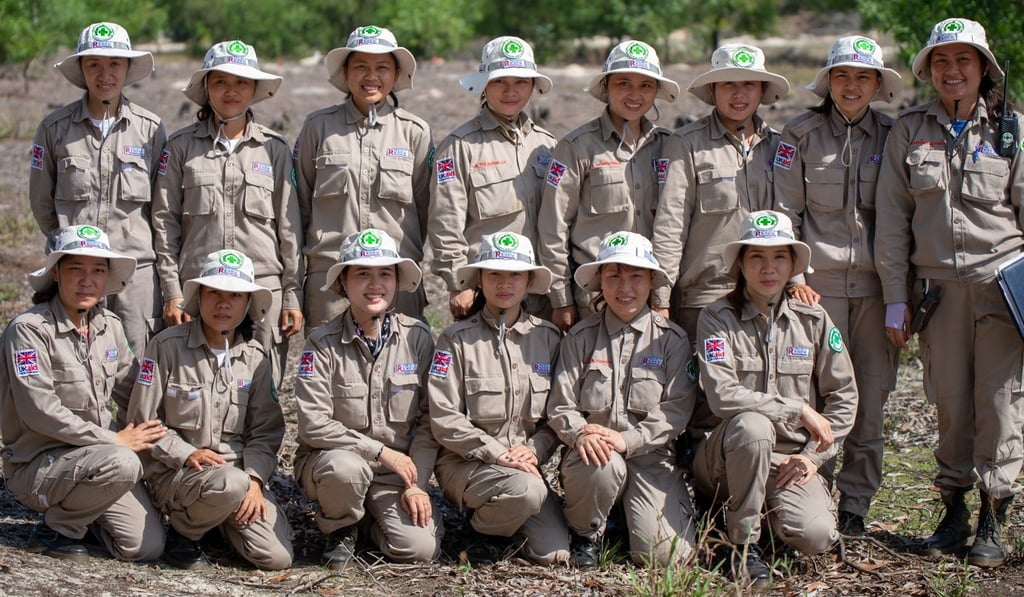44 years after war with US, Vietnam has an all-women team searching for unexploded bombs
- Nguyen Thi Thuy and Le Thi Hoa are part of Vietnam’s first all-female landmine clearing team
- They’re among a growing number of women taking up mine-clearance work – Thuy was so dedicated that she worked through her pregnancy

Wearing a khaki uniform and desert boots, Le Thi Hoa ties her hair in a ponytail and tucks it under her jungle hat. She steps out on to a bare plot of land with a metal detector, bucket and small spade in hand.
The 37-year-old, a former rubber plantation worker, methodically sweeps the ground with the detector, inching forward only if the device remains silent. If it starts beeping, her team’s work begins. Hoa, together with more than a dozen other women, is part of Vietnam’s first all-female landmine clearing team, formed in October 2018 by Project Renew, an organisation that removes buried unexploded ordnance from Quang Tri Province, and with the help of the Norwegian People’s Aid.
The organisation was founded in 2001 by the Quang Tri provincial government, and receives donations mainly from the US Department of State, UK’s Department for International Development and Irish Aid.

An increasing number of Vietnamese women are taking up mine-clearing jobs, which were once seen as too dangerous. Project Renew now has more than 60 women working for it, after 12 more women joined in the first three months of this year. The British-based Mines Advisory Group (MAG), which started work in Vietnam in 1999, has also seen the number of women workers double to 167 over the past two years.
I thought to myself, why are people still dying and why is the war still affecting people?
The team’s leader, Nguyen Thi Thuy, 30, joined Project Renew in 2013, after learning about the dangers posed by unexploded remnants of war. Gio Linh district, where she was born and raised, is so riddled with unexploded ordnance that it is too dangerous to farm. “I saw a lot of unexploded ordnance as a child. I also saw a neighbour get injured when a UXO exploded,” said Thuy, who is one of two female team leaders at the organisation. “I wanted to help to keep the province safe.”
